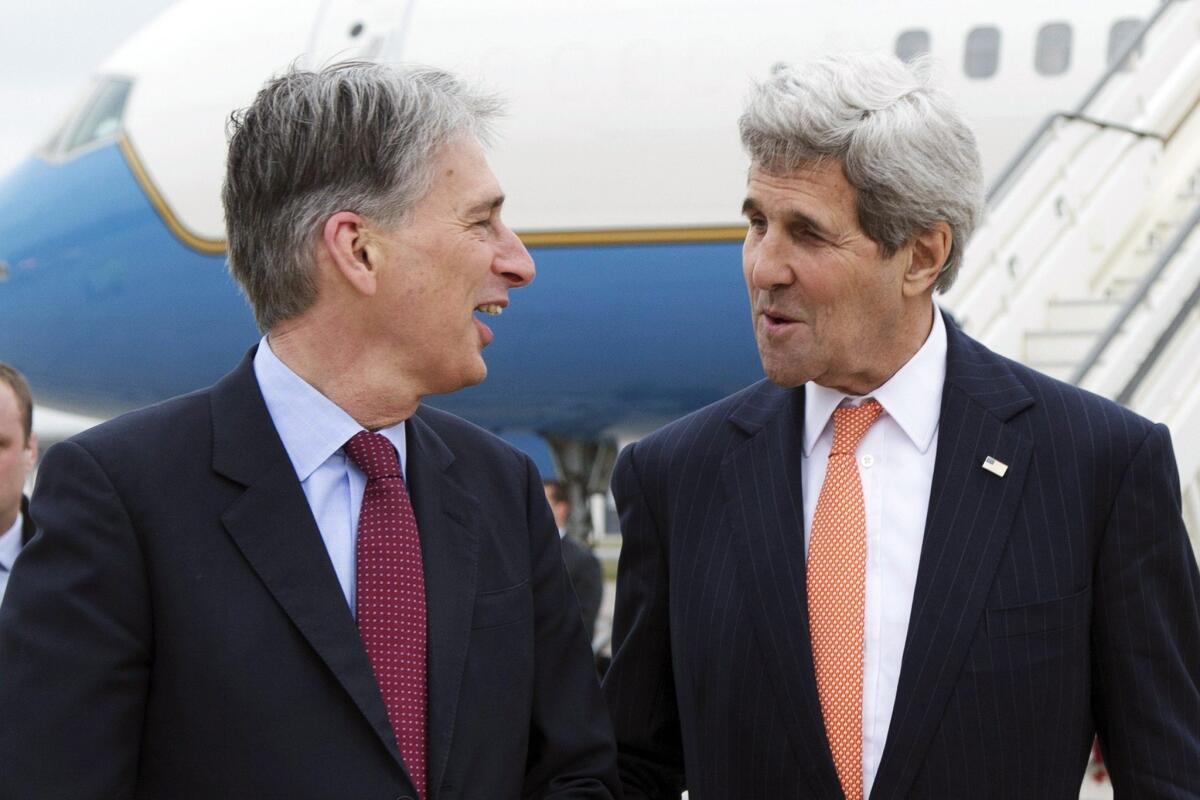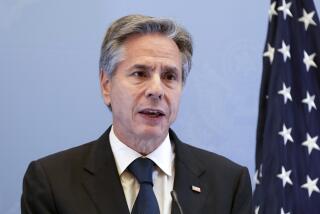John Kerry urges swift resolution in Iran nuclear talks; France hesitant

Secretary of State John Kerry Saturday urged a quick resolution of the international negotiations over Iran’s nuclear program, amid French warnings that too much haste could yield a bad deal.
In a rare hint of divisions between Western governments on the issue, Kerry said the six nations bargaining with Iran should try to complete the outline of a deal by the U.S. target date of March 31.
The decisions “don’t get any easier as time goes by,” he said before leaving this city, where the negotiations were held, and heading to London for a late afternoon meeting with French, German and British foreign ministers.
The Obama administration is working with Iran and five governments -- France, Britain, Germany, Russia and China -- to negotiate a deal that would lift economic sanctions on Iran if it agreed to restrictions aimed at preventing it from gaining nuclear weapons capability. If the outline of a deal can be completed this month, the negotiators will aim to iron out the remaining details of a comprehensive agreement by June 30.
The Western governments publicly insist there are no important differences among themselves. But French diplomats have been staking out tougher terms on some issues, including the duration of the pact and the schedule for lifting sanctions, diplomats said.
France has said it wants the deal to last 15 years; U.S. officials have sometimes said 10 to 15 years, though they have also said that the duration remains to be negotiated. U.S. officials want sanctions to be gradually removed as Iran takes steps to comply with the deal. France contends they should remain in force until later in the process.
Iranian officials, though generally optimistic in public remarks that a deal can be reached, have privately pointed to French concerns as a possible obstacle to completion of the deal in the next 10 days.
Gerard Araud, France’s ambassador to the United States, tweeted Friday that the deadline was a “bad tactic” that would put the six powers at a disadvantage in the bargaining.
President Obama telephoned French President Francois Hollande on Friday to discuss the negotations, among other issues.
The differences are awkward for the Western governments, since they have more leverage with Iran if they bargain as a unified group. They regularly declare that they are completely unified.
France has taken the toughest stance with Iran in negotiations stretching back to 2003. Before the world powers reached an interim nuclear deal in November 2013, French Foreign Minister Laurent Fabius went public with his concerns that the terms needed to be toughened.
U.S. officials have sometimes said French statements were designed for domestic consumption. Some analysts say they reflect France’s desire to show key allies and business partners in the Arab world and Israel that they have done all they could to defend their mutual interests.
Many diplomats consider it unlikely, however, that France would stand in the way if the United States and other countries at the table were ready to accept a deal.
Kerry said the meeting in London was an effort to reach agreement among the four Western governments on the final issues.
World powers suspended their talks on Friday, with plans to resume them in Lausanne on Wednesday.
More to Read
Start your day right
Sign up for Essential California for news, features and recommendations from the L.A. Times and beyond in your inbox six days a week.
You may occasionally receive promotional content from the Los Angeles Times.







